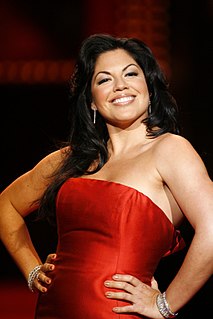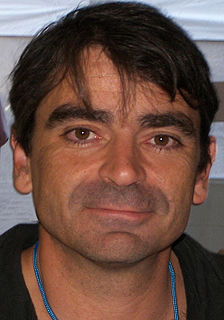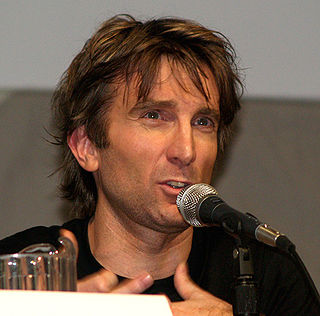A Quote by Jennifer Egan
You can start imagining all kinds of things characters would feel, but you have to have a sense of whether those imaginings might be right.
Related Quotes
I had all kinds of fantasies, like a lot of girls, but did I actually go through the motions of planning a wedding and buying bridal magazines and imagining things and setting up who would play what role? No. Because as I grew up, I started to believe that I would be one of those gals that never got married.
I just didn't feel very good. One day I woke up and I was like: "All right. I'm going to start eating right. I'm going to start working out." I figured it might help me feel a little bit better - even if I was still sick, it might help me move forward with my struggles. I just kind of turned a corner.
I think it's interesting playing characters who are flawed and make mistakes because we all have - no one's just one thing - no one is just bad or just good - so I like finding flawed characters and playing with their redeeming qualities, whether you play it outwardly or not. I think that one of the reasons I'm an actor is that I love people and I love finding out who they are and why they do the things they do, so it is fun to play those kinds of characters.
When I start, I have a feeling for the characters, and maybe the shape of the story. Sometimes I might even have the last sentence in mind. But, no book I've ever written has ever ended the way I thought it would. Characters disappear, others come forward. Once you start writing, everything changes.
Everything I learn about the world, whether it's the simple arcana of how commercial products are manufactured and designed and how they reach our shelves and where the chips come from and who does the code, to more profound things like whether or not a black hole might be penetrable as a wormhole, whether or not universes might be accessible from here, whether space can be stretched and compressed to enable faster-than-light travel without violating physical law - all of those things have tremendous story potential.
Investing is the intersection of economics and psychology. The analysis is actually the easy part. The economics, the valuation of the business isn't that hard. The psychology - how much do you buy, do you buy it at this price, do you wait for a lower price, what do you do when it looks like the world might end - those things are harder. Knowing whether you stand there, buy more, or whether something has legitimately gone wrong and you need to sell, those are harder things. That you learn with experience, by having the right psychological makeup.
Publishing a book is a great thing, and I'm grateful, but it's also a horrible, exposing thing. Once you've published a book, you never write quite as freely again. You're aware, from that point onward, of the kinds of things critics might say about it. You're aware of the kinds of things your publishers might like and dislike about it. You're half-aware of marketing strategies - of all the stuff around the book. Whereas with your very first piece of fiction, if you're lucky, those things barely occur to you at all.
I'm not interested in going to casting after casting, trying to get into that game. So there is a part of me that knows that I will do more characters, even if I have to produce those projects myself to get those projects out there. If the right characters come along, I would love to. I would jump at the chance.






































